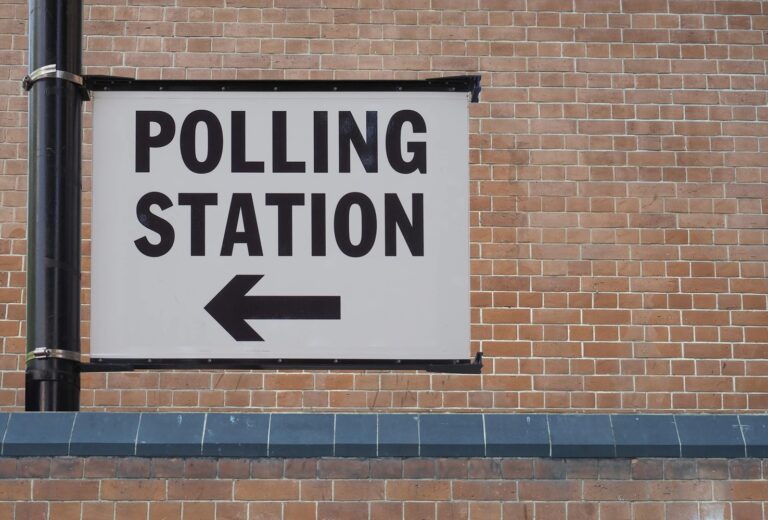
Welcome to my first column of 2024! I believe this year is going to be quite eventful, so I hope you had a wonderful Christmas and are ready for the ride ahead. Let’s buckle up and get ready for what’s to come.
Election time
I have recently read an article that stated 2024 is set to be the biggest election year in history, with 70 elections scheduled to take place in 40 countries worldwide. I can’t help thinking of one of Ronald Reagan’s most famous quotes “The most terrifying words in the English language are: ‘I am from the Government, and I am here to help’.”
There is the potential to see some significant changes in the running of many large countries this year, and one of the fundamental questions is, “Will it be helpful?”
Without wishing to pre-empt the outcome, for our members in the UK and Ireland this will likely bring uncertainty, followed by change, followed probably by more uncertainty.
Leading up to potential elections in both countries, the topics of climate change, decarbonisation and net zero are likely to be high on the agenda. While the debate might have moved on from whether climate change is real, the questions about the best course of action and who will pay for it are still very much part of the debate.
The leaders we need
In recent months, we have seen the UK Prime Minister reset some of the net zero timelines, arguing that it is important to bring people along to effect change. This does feel right, and some of the proposals made regarding oil boilers are sensible, as is ensuring the right technology is fitted into our homes.
At the same time, we need leaders who are prepared to take us to places we don’t initially want to go. But this can only be done if they are convinced of the argument, and compensate for the impact where necessary. What they can’t do is impose and run for the hills.
A good illustration is policy concerning the electricity grid. We know from research commissioned for the UK Government that this is a real problem in rural communities. At 90% capacity (to provide for redundancy), nearly 25% of the networks would be overloaded on a typical winter’s day and 35% on a 1 in 20 winter peak day in the areas carrying heat pumps.
Both main parties have pledged to improve this situation. The problem with upgrading grids is that the process is disruptive and, in many cases, has an impact on landscapes. In addition, there is a price to pay in the short term, which will end up on consumers’ bills. We know from our own work that these issues are important to local communities. It will be interesting to see how political parties bring people on-side as policy develops, which will inevitably involve some form of local planning changes. Communities will want to feel benefits alongside being part of the decision making so they do not feel put upon.
This is not a UK and Ireland phenomenon. The International Energy Agency (IEA) recently estimated that to achieve the climate goals set by global governments, more than 80 million kilometres (49.7 million miles) of electric grids have to be added or refurbished by 2040, which is the equivalent of the entire existing global grid.
The devil will be in the detail
Closer to home, the Scottish Government recently announced its proposals for home heating. In a bow to public opinion, the plan for removing a million boilers by 2030 has been replaced with a commitment to prohibit the use of “polluting heating systems” by 2045 and a requirement that homeowners ensure that their homes meet a reasonable minimum energy efficiency standard by 2033.
Those purchasing homes will be required to end their use of polluting heating systems within a fixed period following the completion of the sale. And finally, new laws will be introduced that will require people and businesses to end their use of polluting heating when a heat network becomes available – probably enforced through local councils.
I was pleased to see that our work on renewable liquid fuels has proven fruitful, with the Scottish government recognising it may be the best option for some homes. Clearly, the devil will be in the detail.
But I am in two minds about the announcement. I welcome the move to 2045 – this is a practical decision. However, I have previously stated in this column that I dislike bans, and ultimately, they turn out to be counter-productive, with the prohibition being discussed more than the need.
There is a need for a change in the narrative. We need to find a decarbonisation pathway that works while maintaining fundamental freedom of choice. This is likely to involve more than one technology.
Putting in place prohibitions and ordering people to do things to their homes, regardless of how affordable it is, simply will not work and ignores the economic background of the current day. For example, the last time house prices were this expensive, relative to average earnings, was in the year 1876, nearly 150 years ago.
Elections are all about winning friends and influencing people. However, after the white heat of politics is over, the only thing that really matters is that governments are here to help.
